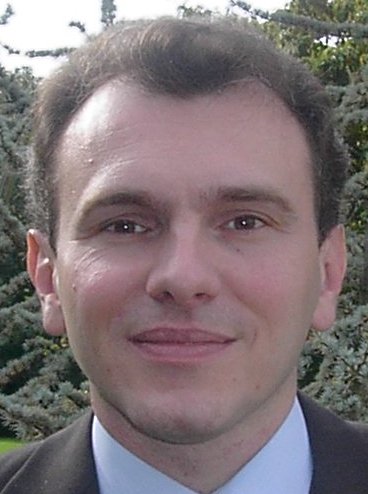Studying at the University of Verona
Here you can find information on the organisational aspects of the Programme, lecture timetables, learning activities and useful contact details for your time at the University, from enrolment to graduation.
Academic calendar
The academic calendar shows the deadlines and scheduled events that are relevant to students, teaching and technical-administrative staff of the University. Public holidays and University closures are also indicated. The academic year normally begins on 1 October each year and ends on 30 September of the following year.
Course calendar
The Academic Calendar sets out the degree programme lecture and exam timetables, as well as the relevant university closure dates..
| Period | From | To |
|---|---|---|
| 1st Semester | Oct 1, 2009 | Jan 31, 2010 |
| 2nd Semester | Mar 1, 2010 | Jun 15, 2010 |
| Session | From | To |
|---|---|---|
| Sessione straordinaria | Feb 1, 2010 | Feb 28, 2010 |
| Sessione estiva | Jun 16, 2010 | Jul 31, 2010 |
| Sessione autunnale | Sep 1, 2010 | Sep 30, 2010 |
| Session | From | To |
|---|---|---|
| Sessione autunnale | Sep 29, 2009 | Sep 29, 2009 |
| Sessione straordinaria | Dec 10, 2009 | Dec 10, 2009 |
| Sessione invernale | Mar 17, 2010 | Mar 17, 2010 |
| Sessione estiva | Jul 19, 2010 | Jul 19, 2010 |
| Period | From | To |
|---|---|---|
| Festa di Ognissanti | Nov 1, 2009 | Nov 1, 2009 |
| Festa dell'Immacolata Concezione | Dec 8, 2009 | Dec 8, 2009 |
| Vacanze Natalizie | Dec 21, 2009 | Jan 6, 2010 |
| Vacanze Pasquali | Apr 2, 2010 | Apr 6, 2010 |
| Festa della Liberazione | Apr 25, 2010 | Apr 25, 2010 |
| Festa del Lavoro | May 1, 2010 | May 1, 2010 |
| Festa del Santo Patrono | May 21, 2010 | May 21, 2010 |
| Festa della Repubblica | Jun 2, 2010 | Jun 2, 2010 |
| Vacanze Estive | Aug 9, 2010 | Aug 15, 2010 |
Exam calendar
Exam dates and rounds are managed by the relevant Science and Engineering Teaching and Student Services Unit.
To view all the exam sessions available, please use the Exam dashboard on ESSE3.
If you forgot your login details or have problems logging in, please contact the relevant IT HelpDesk, or check the login details recovery web page.
Should you have any doubts or questions, please check the Enrollment FAQs
Academic staff
 giuseppe.diguglielmo@univr.it
giuseppe.diguglielmo@univr.it
 luigi.diguglielmo@univr.it
luigi.diguglielmo@univr.it
Eleuteri Michela
 massimo.guerriero@univr.it
massimo.guerriero@univr.it
 gino.mariotto@univr.it
gino.mariotto@univr.it
 luca.vigano@univr.it
luca.vigano@univr.it
Study Plan
The Study Plan includes all modules, teaching and learning activities that each student will need to undertake during their time at the University.
Please select your Study Plan based on your enrollment year.
1° Year
| Modules | Credits | TAF | SSD |
|---|
2° Year activated in the A.Y. 2010/2011
| Modules | Credits | TAF | SSD |
|---|
3° Year activated in the A.Y. 2011/2012
| Modules | Credits | TAF | SSD |
|---|
| Modules | Credits | TAF | SSD |
|---|
| Modules | Credits | TAF | SSD |
|---|
| Modules | Credits | TAF | SSD |
|---|
Legend | Type of training activity (TTA)
TAF (Type of Educational Activity) All courses and activities are classified into different types of educational activities, indicated by a letter.
Software Engineering (2011/2012)
Teaching code
4S00032
Teacher
Coordinator
Credits
6
Also offered in courses:
- Software Engineering of the course Bachelor's degree in Bioinformatics
Language
Italian
Scientific Disciplinary Sector (SSD)
INF/01 - INFORMATICS
Period
II semestre dal Mar 1, 2012 al Jun 15, 2012.
Learning outcomes
The course introduces the basic scientific and professional notions of software engineering, addressing in particular the different phases of the software development process: planning, design, modeling and specification, implementation, testing and validation, evaluation, maintenance. The programming projects carried out in the lab complement the theory lectures with the design and realization of complex software systems "in the large".
Program
- Software, product and process:
- Quality attributes.
- Software life-cycles.
- Phases and activities of the software development process.
- Planning of the development process:
- Feasibility study.
- Definition of requirements and constraints.
- Risk management.
- Production control.
- Configuration management and versioning.
- Project administration.
- Software development:
- Requirements elicitation and analysis.
- Rapid prototyping.
- Specification and implementation.
- Verification.
- Scalability.
- Component-based design.
- Software reuse.
- Design patterns.
- Software architectures.
- Standards for implementation and documentation.
- The standard language UML 2 for software modeling.
- Formal software specification languages.
- "In the large" programming.
- Evaluation, validation and testing of software.
Examination Methods
The examination consists of a written test, for which the students obtain 5 credits, which will be added to the 1 credit the students obtain when they complete the laboratory activity.
The examination of the laboratory activity consists of the completion of a number of projects, which the students can carry out in small groups (of 3 o 4 students).
The written test must be taken without the help of notes, books, or other documentation. The teacher may decide to replace the written test with an oral examination, especially whenever it is not possible to make sure that the students cannot access this documentation.
Type D and Type F activities
Modules not yet included
Career prospects
Module/Programme news
News for students
There you will find information, resources and services useful during your time at the University (Student’s exam record, your study plan on ESSE3, Distance Learning courses, university email account, office forms, administrative procedures, etc.). You can log into MyUnivr with your GIA login details: only in this way will you be able to receive notification of all the notices from your teachers and your secretariat via email and soon also via the Univr app.
Graduation
List of theses and work experience proposals
| theses proposals | Research area |
|---|---|
| Analisi e percezione dei segnali biometrici per l'interazione con robot | AI, Robotics & Automatic Control - AI, Robotics & Automatic Control |
| Integrazione del simulatore del robot Nao con Oculus Rift | AI, Robotics & Automatic Control - AI, Robotics & Automatic Control |
| Domain Adaptation | Computer Science and Informatics: Informatics and information systems, computer science, scientific computing, intelligent systems - Computer graphics, computer vision, multi media, computer games |
| Domain Adaptation | Computer Science and Informatics: Informatics and information systems, computer science, scientific computing, intelligent systems - Machine learning, statistical data processing and applications using signal processing (e.g. speech, image, video) |
| BS or MS theses in automated reasoning | Computing Methodologies - ARTIFICIAL INTELLIGENCE |
| Domain Adaptation | Computing Methodologies - IMAGE PROCESSING AND COMPUTER VISION |
| Domain Adaptation | Computing methodologies - Machine learning |
| Dati geografici | Information Systems - INFORMATION SYSTEMS APPLICATIONS |
| Analisi e percezione dei segnali biometrici per l'interazione con robot | Robotics - Robotics |
| Integrazione del simulatore del robot Nao con Oculus Rift | Robotics - Robotics |
| BS or MS theses in automated reasoning | Theory of computation - Logic |
| BS or MS theses in automated reasoning | Theory of computation - Semantics and reasoning |
| Proposte di tesi/collaborazione/stage in Intelligenza Artificiale Applicata | Various topics |
| Proposte di Tesi/Stage/Progetto nell'ambito dell'analisi dei dati | Various topics |
Attendance
As stated in the Teaching Regulations for the A.Y. 2022/2023, attendance at the course of study is not mandatory.

 +39 045 802 7980
+39 045 802 7980




















